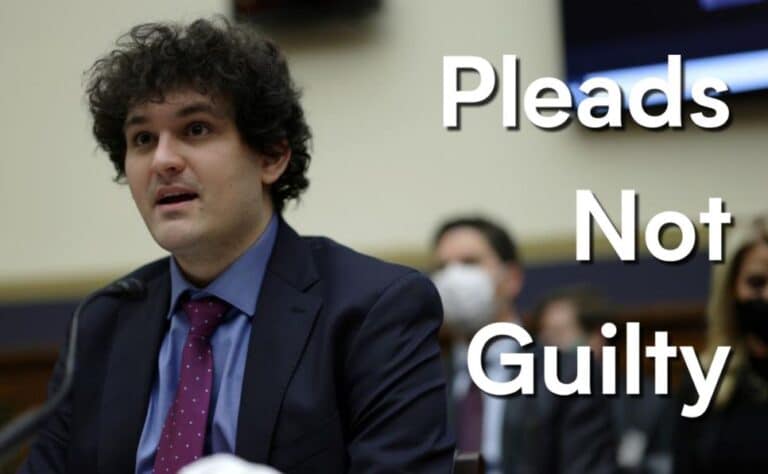Last week marked a historic moment in the cryptocurrency industry with centralized exchange giant FTX going bankrupt in a matter of days. It’s triggered yet another major drop in crypto prices, with Bitcoin around $16K and Ethereum at $1.2K, and people are testing other exchanges to see if they’ll go bankrupt as well. While the crypto industry may seem full of uncertainty, we want to provide you with some important information so you can be well-informed.
Here’s What You Should Know About the FTX Collapse
FTX’s current situation began on Nov. 2 when reports were released showing that Alameda Research, a trading firm established by FTX CEO Sam Bankman-Fried (known as SBF), held a large amount of FTX Token (FTT) on their balance sheet. This concerned the crypto community, as it’s questionable for a company to hold so much of an asset. On Nov. 5, about 23 million FTT were moved onto exchange platform Binance, prompting users to become skeptical about FTT and wonder if Binance was about to sell their FTT holdings. The following day, Alameda Research CEO Caroline Ellison took to Twitter to attempt to explain away people’s fears by stating that their balance sheets do not accurately reflect all of the company’s finances.
This did not convince Binance CEO Changpeng Zhao (known as CZ), as Binance moved to liquidate, or sell, their FTT tokens. Ellison tweeted at CZ, offering to buy all of Binance’s FTT, meaning that they feared Binance’s massive selloff would significantly drop the value of FTT, putting their finances in jeopardy. It triggered what is called a “bank run” of FTX – when customers of a financial service withdraw their funds en masse. During the panic, SBF tweeted that “FTX is fine. Assets are fine”. This would turn out to be very, very, wrong. When Binance refused Ellison’s offer to buy their FTT at $22 a token, the price of FTT dove around 30% in just a few hours.
In a surprising announcement on Nov. 8, SBF said that Binance was going to help out FTX to cover a “liquidity crunch” and that customer assets would be backed 1:1. It was then announced that Binance had signed a letter of intent to acquire FTX, but clearly noted that they retained the right to withdraw at any time. This was fortunate for them, as the next 48 hours Binance conducted corporate due diligence and found that FTX was mishandling customer funds and had multiple open investigations. Binance officially backed out of the agreement on Nov. 9, putting the nail in FTX’s coffin, so to speak.
The crypto market reacted wildly. FTT continued to sink to around $4, and major cryptos struggled for support. Bitcoin hit a new yearly low of $15,600 and Ethereum sank to $1,100, and the rest of the market followed. SBF told investors that FTX needed $8 billion in emergency funding to cover the liquidity crunch caused by mass withdrawals, and the exchange’s website displayed a warning saying that withdrawals were disabled and advised against depositing.

The reality of the situation hit when FTX, FTX US, Alameda Research, and about 130 companies in the FTX Group filed for Chapter 11 bankruptcy in the United States. SBF resigned from his position as CEO, and is being monitored closely by Bahamian authorities, even while he tweets strange things.
As it turns out, FTX was lending its sister company Alameda Research customer funds to bail them out for making risky bets. Since Alameda owned billions of FTT, they couldn’t sell them to bail themselves out because it would significantly drop both their values. There are many legal problems with this, as FTX promised its customers it would not speculate with their funds, since they weren’t property of the exchange. Now FTX’s legal team has quit, their CEO has resigned, and they’re under investigation by the SEC. It’s truly been a wild week of crypto news.
What Does This Mean for Crypto?
The cryptocurrency market has taken a big hit, that’s for sure. Prices were already low, but now they\’ve been pressured even lower. That doesn’t mean it’s game over, though. There have been massive exchanges going bankrupt throughout 2022, and even before that – FTX just happens to be one of the most notable ones. All of the remaining centralized exchanges (CEXs) are being urged by the public to conduct an audit and post their proof of reserves, which shows that they have enough funds to cover 100% of customer funds if they were to withdraw.
All the negativity in the news might drive people away, but there’s still plenty of reason to believe in the mission of crypto. As Binance CEO CZ said, “It may take some effort, but what else have we got to do? Let’s rebuild.” While it might seem like everything is crashing down at the moment, cryptocurrency is here to stay. Mass crypto adoption starts with educating the masses, starting with the concept of self-custody.
The Importance of Self-Custody
A common theme that RockItCoin will keep reiterating is the importance of self-custody of our customer’s digital assets. While we’ve already written a blog about the topic, we’d like to take a moment to speak on it again.
Centralized exchanges like FTX own the private keys to customer’s funds, which means that the exchange has full control over them until the customer moves the funds somewhere else. According to data from blockchain analytics firm Glassnode, over 106,000 BTC have left exchange platforms in the past month, and some estimates quote upwards of $3 billion in BTC leaving exchanges in the past week alone. In FTX’s case, they were even using customer funds to make risky bets through their sister company. When an exchange does not have enough funding to back customer’s funds to make withdrawals, they can go bankrupt, and the customer can lose their funds forever. Thousands of exchange users are realizing this and turning to non-custodial wallets to store their funds.
A non-custodial wallet, like a paper wallet or the RockItCoin app, gives a user full control of their funds. With a paper wallet, the customer is given a one-off copy of both the private and public key of their wallet, giving them full control over the cryptocurrency stored on it. In the case of the RockItCoin app, customers can access their wallet’s private key seed phrase, which is a set of words that grant access to the wallet’s funds. RockItCoin will only allow customers to transact if they have their own personal wallet, ensuring that customers are in full control of their funds.
Does This Affect RockItCoin in Any Way?
RockItCoin has no exposure or connection to FTX, FTX US, or any other FTX Group companies. We are healthy financially and will continue to operate as normal, providing our customers with a safe and secure way to buy and sell cryptocurrency. Find a RockItCoin Bitcoin ATM location near you today!








